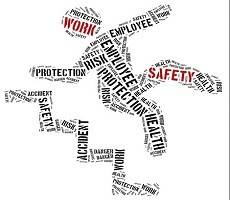August 25, 2016
Research suggests individual responses to stress at work vary widely 0
 No matter how compelling the evidence on the impact of stress at work there are always individuals who dismiss the very idea as self-indulgence. New research suggests this isn’t down to lack of empathy but simply because some people just don’t experience stress the same as others. The survey by the Deloitte Greenhouse Experience team found statistically significant variation in how respondents react to stressors which indicates that workplace stress is relative and not everyone experiences stress in the same way or to the same degree. The majority of respondents reported modest levels of stress. Fourteen percent reported being stressed only rarely and 57 percent reported being stressed sometimes, while 26 percent reported being stressed often, and 3 percent reported being always stressed. Different scenarios were also mooted to identify stress triggers. Making mistakes topped the list of stressors, with 82 percent of respondents indicating errors caused stress.
No matter how compelling the evidence on the impact of stress at work there are always individuals who dismiss the very idea as self-indulgence. New research suggests this isn’t down to lack of empathy but simply because some people just don’t experience stress the same as others. The survey by the Deloitte Greenhouse Experience team found statistically significant variation in how respondents react to stressors which indicates that workplace stress is relative and not everyone experiences stress in the same way or to the same degree. The majority of respondents reported modest levels of stress. Fourteen percent reported being stressed only rarely and 57 percent reported being stressed sometimes, while 26 percent reported being stressed often, and 3 percent reported being always stressed. Different scenarios were also mooted to identify stress triggers. Making mistakes topped the list of stressors, with 82 percent of respondents indicating errors caused stress.














 As regular readers are no doubt aware, normally we don’t comment on the reports and surveys we publish, instead leaving people to form their own opinions. However,
As regular readers are no doubt aware, normally we don’t comment on the reports and surveys we publish, instead leaving people to form their own opinions. However, 


 A ‘stiff upper lip’ attitude towards wellness by UK bosses needs to change in order to advance employee wellbeing, argues a survey by Bupa. It is business leaders who are the key to overcoming the challenges facing employees’ health and wellbeing, it claims. The vast majority (94 percent) of those questioned believe there will be significant change in the employer-employee relationship in the next ten years. 91 percent of business leaders agree that technology will continue to impact the wellbeing of their workforce over the next decade and 71 percent agree the standard 9am-5pm working day is a thing of the past. Seven in ten (68 percent) noted a ‘stiff upper lip attitude’ at executive level, creating barriers to conversations about wellbeing, and three fifths (62 percent) of leaders think they need to show that they don’t suffer from ill health.
A ‘stiff upper lip’ attitude towards wellness by UK bosses needs to change in order to advance employee wellbeing, argues a survey by Bupa. It is business leaders who are the key to overcoming the challenges facing employees’ health and wellbeing, it claims. The vast majority (94 percent) of those questioned believe there will be significant change in the employer-employee relationship in the next ten years. 91 percent of business leaders agree that technology will continue to impact the wellbeing of their workforce over the next decade and 71 percent agree the standard 9am-5pm working day is a thing of the past. Seven in ten (68 percent) noted a ‘stiff upper lip attitude’ at executive level, creating barriers to conversations about wellbeing, and three fifths (62 percent) of leaders think they need to show that they don’t suffer from ill health.
 Management behaviour is contributing to rising workplace stress levels with employees blaming their own bosses for adding to the pressures they feel, a new study of 1,200 people by MetLife claims. The study suggests that 69 percent of employees say that the behaviour of managers in their organisation has increased stress and that the rising stress is having a major impact on company performance. Around 45 percent of employees say that stress caused by management has led to staff in their organisation taking extended time off. This in turn increases costs and affects productivity as well as impacting other workers who take on an increased workload. Government data estimates that around 35 percent of all work-related ill-health is caused by stress and that stress accounts for 43 percent of all working days lost to ill-health – the equivalent of 9.9 million working days a year at an average of 23 days per case.
Management behaviour is contributing to rising workplace stress levels with employees blaming their own bosses for adding to the pressures they feel, a new study of 1,200 people by MetLife claims. The study suggests that 69 percent of employees say that the behaviour of managers in their organisation has increased stress and that the rising stress is having a major impact on company performance. Around 45 percent of employees say that stress caused by management has led to staff in their organisation taking extended time off. This in turn increases costs and affects productivity as well as impacting other workers who take on an increased workload. Government data estimates that around 35 percent of all work-related ill-health is caused by stress and that stress accounts for 43 percent of all working days lost to ill-health – the equivalent of 9.9 million working days a year at an average of 23 days per case.


















August 23, 2016
US Millennials ‘martyred’ behaviour helps drive culture of presenteeism 0
by Sara Bean • Comment, Flexible working, News, Wellbeing, Workplace
More →